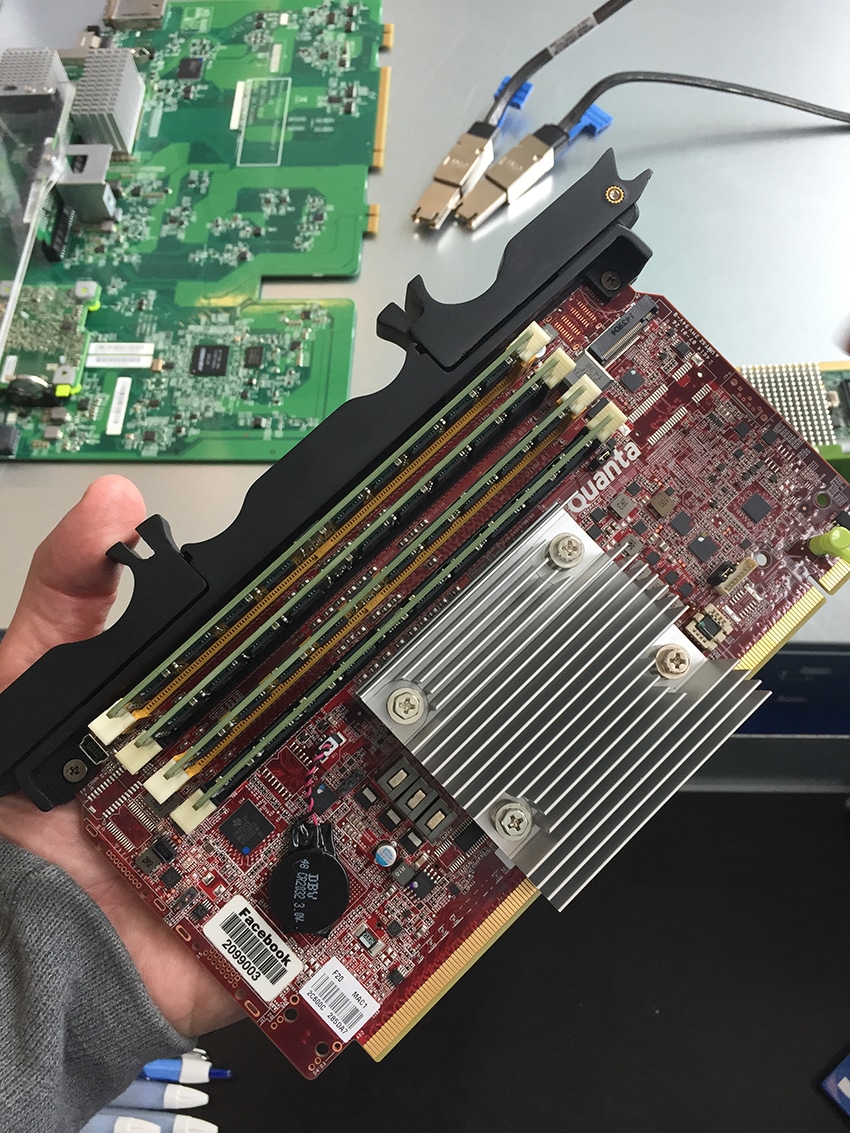 Facebook has announced the first open source modular chassis for high-powered microservers, code-named Yosemite, while proposing the design as a contribution to the Open Compute Project for all members of the community to build on and deploy. Yosemite is designed as a modular chassis containing high-powered system-on-a-chip (SoC) processor cards, providing Facebook’s infrastructure with capacity that scales out when required.
Facebook has announced the first open source modular chassis for high-powered microservers, code-named Yosemite, while proposing the design as a contribution to the Open Compute Project for all members of the community to build on and deploy. Yosemite is designed as a modular chassis containing high-powered system-on-a-chip (SoC) processor cards, providing Facebook’s infrastructure with capacity that scales out when required.
Facebook has announced the first open source modular chassis for high-powered microservers, code-named Yosemite, while proposing the design as a contribution to the Open Compute Project for all members of the community to build on and deploy. Yosemite is designed as a modular chassis containing high-powered system-on-a-chip (SoC) processor cards, providing Facebook’s infrastructure with capacity that scales out when required.

Facebook began experimenting with SoCs roughly two years ago when they were mostly lightweight, focusing on small cores using low power (the majority were less than 30W). Facebook indicates that their first approach was to pack up to 36 SoCs inside a 2U enclosure, allowing upwards of 540 SoCs per rack. This method did not pan out for Facebook, as the single-thread performance was too low, which resulted in high latency issues on their web platform. As such, the company then focused on higher-power processors all the while sustaining the modular SoC approach.
Facebook designed each Yosemite server node as a pluggable module, each holding one SoC that targets up to 65W TDP, multiple memory channels with standard DDR DIMM slots, at least one local SSD interface, and a local management controller. In addition, they also standardized the module interface so compliant cards and systems can interoperate. The interface is an extension from the original “Group Hug” OCP microserver interface, which provides enhanced I/O via an additional PCI-E x16 connector. The Yosemite system also holds up to four SoC cards, which consume upwards of 400W total power (translating to roughly 90W per SoC card). To simplify the external connectivity of this modular server system, Facebook specified one shared network connection, resulting in both data and management traffic.
Features of note include:
- A server-class SoC with multiple memory channels, which provides high-performance computing in 65W TDP for SoC and 90W for the whole server card.
- A standard SoC card interface to provide a CPU-agnostic system interface.
- A platform-agnostic system management solution to manage the system and these 4 SoC server cards, regardless of vendor.
- A multi-host network interconnect card following OCP Mezzanine Card 2.0 specification, which connects up to 4 SoC server cards through single Ethernet port.
- A cost-effective, flexible, and easy-to-service system structure.
Facebook asserts that this system will be fully compatible with Open Rack, which has the ability to house up to 192 SoC server cards in a single rack. The company also announced that Mellanox has already enabled the multi-host support in its next generation ConnectX-4 OCP Mezzanine Card.
